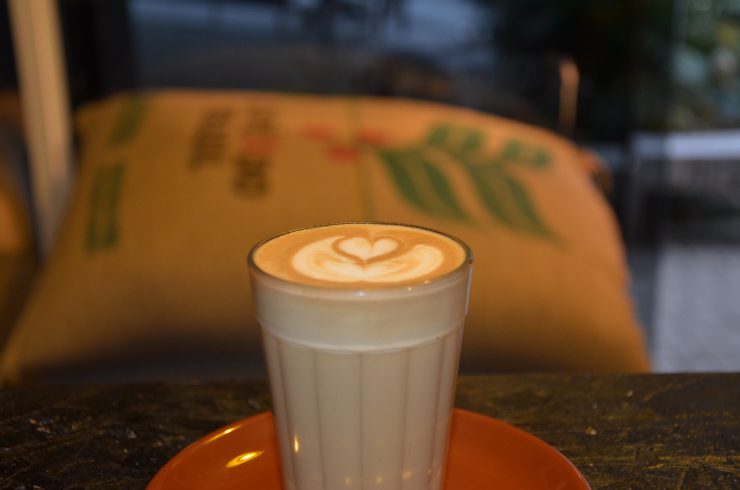
Curitiba, the capital of the Brazilian Southern state Paraná, is avant-garde on several fronts. It has been cited by Forbes as one of the smartest cities in the world for its innovative urban development, modern bus-based transportation system, and a culture that fosters sustainable economic development. The coffee has proven to be no different. The city also lays claim to the reigning national Barista, Latte Art, Brewers, and Coffee in Good Spirits championship title-holders.
Some argue that the climate of the city, with the lowest annual average temperature of all Brazilian capitals, boosted the culture of cafes. Others believe it was the busy cultural and literary scene, nurtured by a highly educated population. We can speculate that Lucca—the pioneering specialty coffee shop in Brazil—was somewhat responsible for driving this movement. Perhaps a combination of all those factors has made Curitiba the best city in the country to have coffee, surpassing the giant São Paulo in the number of specialty coffee shops per capita.
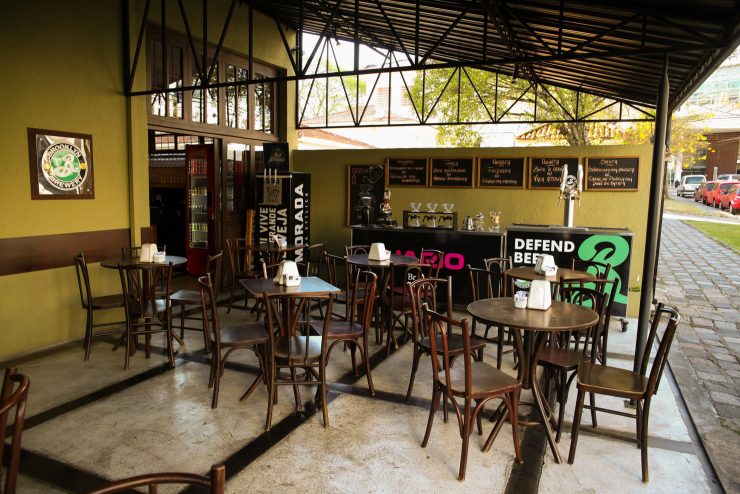
Lucca Cafés Especiais
Located in the charming neighborhood of Batel, Lucca Cafés Especiais has three floors, and a rich history. Georgia and Luiz Franco de Souza quit their careers as civil engineers in 2002 to devote themselves to the world of specialty coffee, at a time when no one in Brazil was talking about specialty coffee. Their hard work paid off and, over time, the couple was able to show to the wary Curitibanos a coffee that was noticeably better than the ones served in other establishments. They also fostered that passion in their daughter, Carolina Franco de Souza, who was Brazil’s Brewers Cup champion in 2014.
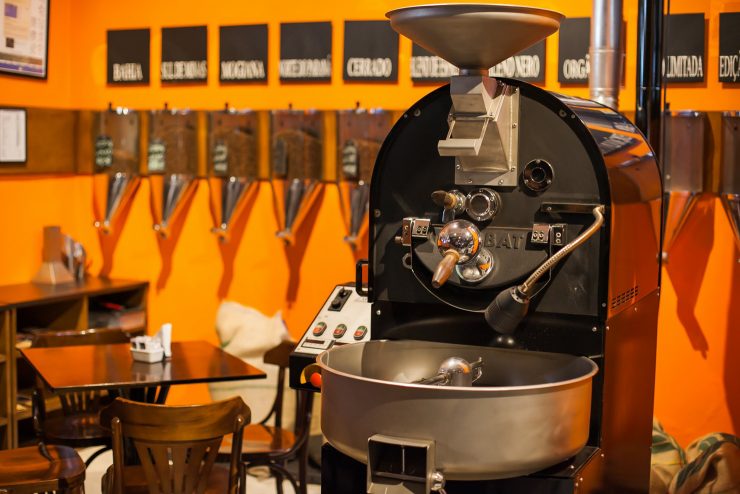
Georgia de Souza roasts on a Probat P5 in the store, and another Probat P12 dedicated to wholesale customers, is located at a nearby warehouse. Lucca features a pour-over bar, a lengthy and carefully crafted selection of single origins, and espresso drinks are prepared via La Marzocco Strada with pressure profile graphs specially developed for each bean/roast. Georgia de Souza and Eduardo Scorsin (featured in Sprudge for his drink in the coffee in Good Spirits championship) are SCAE-certified instructors and will soon start very important work in educating other Brazilian coffee professionals at the soon-to-be-opened lab, on the shop’s second floor.
Lucca Cafés Especiais is located at Alameda Pres. Taunay, 40. Visit their official website and follow them on Facebook and Twitter.
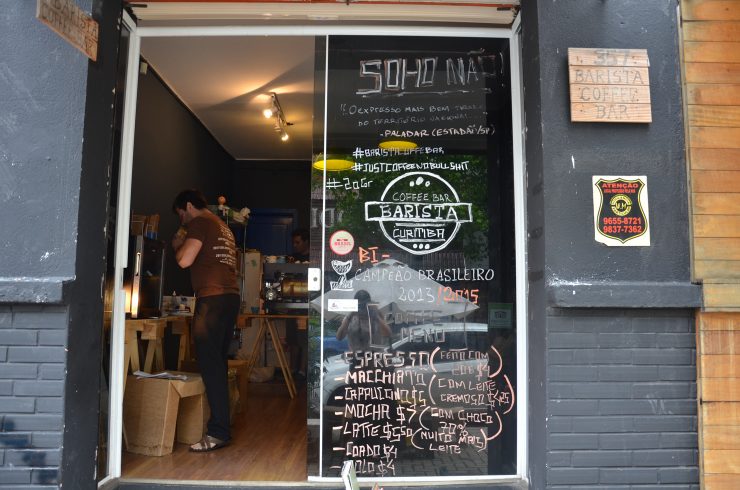
Barista Coffee Bar
A tiny coffee shop located in the mostly residential neighborhood of Juveve, Barista Coffee Bar is run by the current Brazilian Barista champion Leo Moço, and his wife Estela Cotes, Brazilian Brewers Cup champion. At Barista Coffee Bar, Moço and Cotes know the majority of the customers by name. Curitiba’s progressive mayor Gustavo Fruet had just left the shop the day I went to visit. There is even one drink named after a customer, the Bueno: espresso with steamed milk in equal proportions, resembling the US-known cortado. There is a very homey feeling to the coffee shop—in fact, the owners bring their baby, Bento, to the shop every day.
Moço wants to bring back Paraná’s coffee tradition by honoring the productions of the northern part of the state (the Norte Pioneiro), helping them with pre- and post-harvest methods in order to improve cupping sensorial notes. Paraná used to be responsible for half of the Brazilian coffee output during the 1960s and the beginning of the 1970s, but on July 28th, 1975, practically everything was devastated in what later became known as “Black Frost” day. After the crisis, many producers switched to soybeans and other crops, abandoning coffee.
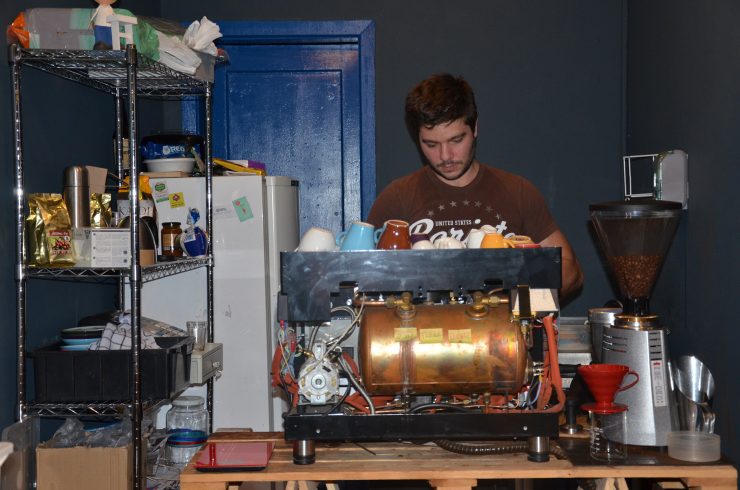
At Barista Coffee Bar, you can still find the very coffee used by Moço in this year’s championship. The producer Evilasio Mori was thinking about giving up the coffee crop altogether when he first met Moço, but they decided to work together on the harvest and the processing of last year’s crop. Moço hopes that his success in the championships will encourage Mori and other producers to put Paraná back on the coffee-producing map.
Moço can be found experimenting with home fermentation on the coffee shop’s sidewalk, and drying coffee inside with an infrared light system he built. He welcomes customers to ask questions and also piques their interest with his naked Faema E61. That way, he says, everyone can see the mechanics behind a simple espresso.
Barista Coffee Bar is located at Rua Moyses Marcondes, 357. Follow them on Facebook.
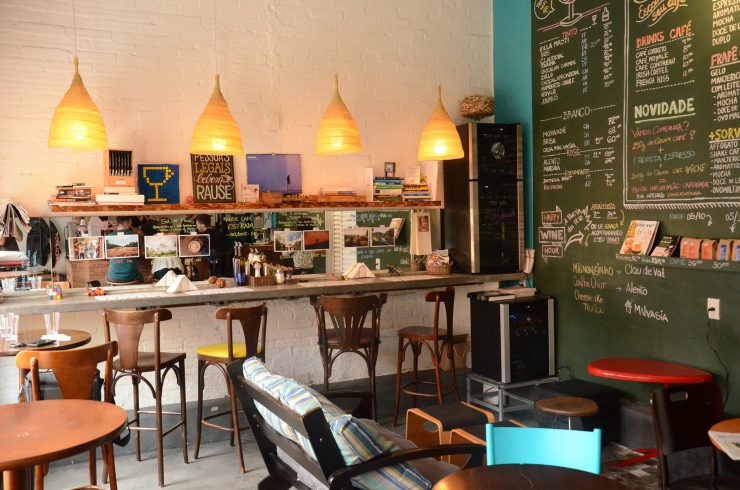
Rause Café e Vinho
Juca Esmanhoto, co-founder of Rause Café e Vinho, immediately begins our discussion around rause—meaning “generous” in Norwegian. The idea Esmanhoto and his partner Hida Lambros had in mind was to create a warm place where one could feel appreciated, have a glass of wine or a cup of coffee. And they made it. The place feels like a friend’s living room, and the waiters and baristas are eager to describe any item displayed in the well-designed menu that occupies one of the walls. Esmanhoto explains that information was purposefully left out of the menu—he wants customers and staff to engage in conversation. In one of the corners of the wall menu, there is a board where one can leave a pre-paid beverage, and eventually one customer will “use” that credit. Sometimes the barista will use that for a homeless person who will come and ask for money and be told “we can’t give you money, but we’ll give you a free coffee.” If they are lucky, they might get a cappuccino crafted by the current Brazilian Latte Art champion Daniel Busch, who works in the shop.
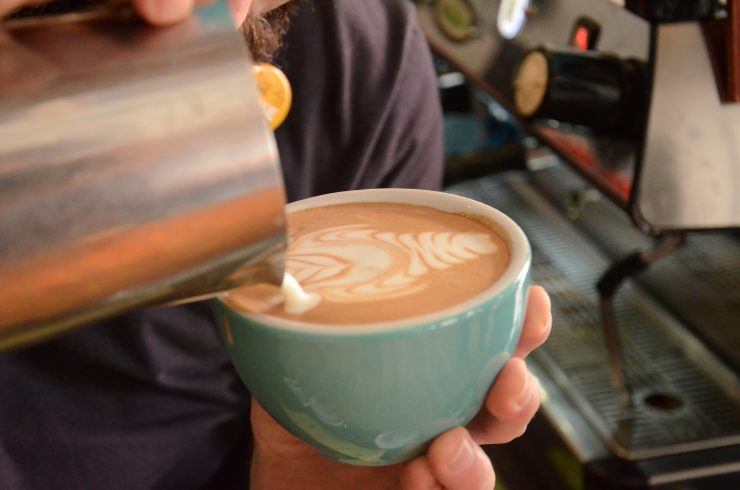
Esmanhoto confirms that the culture of specialty coffee is on the rise in Curitiba, but that there are still people who come in expecting an ordinary cafezinho: a bitter, lukewarm, Arabica-Robusta blended concoction. Cafezinho translates to “little coffee” and Esmanhoto always jokes with customers who attempt to order cafezinhos and says, “here we only have cafezão”—great coffee.
Esmanhoto has recently just come back from a beautiful 30-day expedition that showed Minas Gerais coffee farm workers how good an espresso brewed with their own beans can taste. Rause is currently exhibiting pictures of this mission, and there is a photo book and documentary about the journey to be released soon.
Rause Café e Vinho has multiple locations, visit their official website and follow them on Facebook, Twitter, and Instagram for more information.
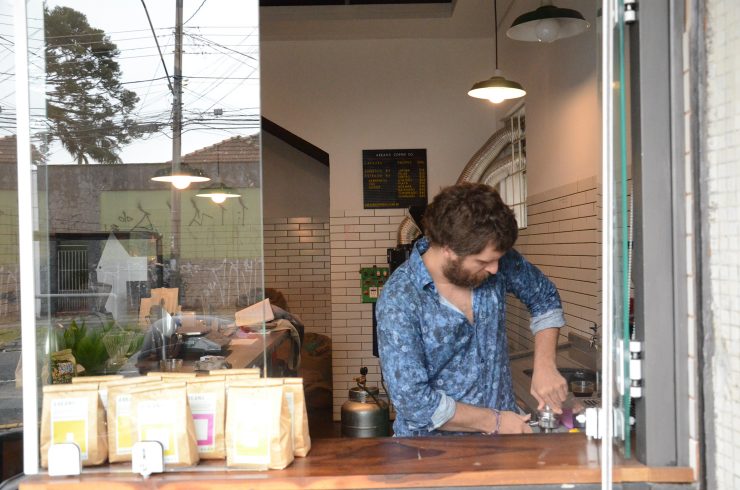
4 Beans Coffee Company
4 Beans Coffee Company is not a coffee shop. They will, however, start serving a small set of espresso-based beverages through the window of their small roastery soon. Co-founder Otavio Linhares was the coffee consultant when Rause opened back in 2011. He had a strong background in specialty coffee, having previously worked for Lucca as a barista, manager, and trainer. Linhares has also won the Brazilian barista championship twice, although today he says he is tired of competing and is dedicated mostly to roasting and his artistic and literary side projects—he has just published a novel.
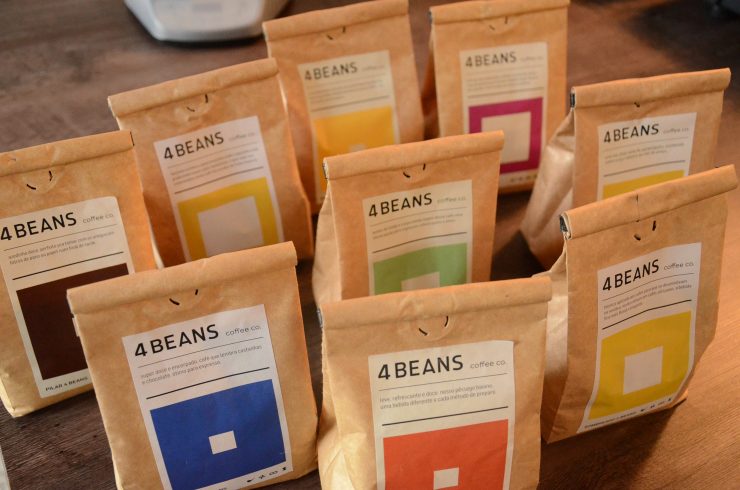
Linhares says 4 Beans prefers not to do any advertising, but instead have its customers spread the word about the work they are doing. He believes in a more profound, meaningful relationship with wholesale customers. This approach seems to be paying off. 4 Beans officially started roasting last January, and already has 17 wholesale customers on the books. The name of the company is a reference to its four co-founders: Hida Lambros and Juca Esmanhoto (also partners at Rause), Amanda Laffayette (roaster), and Linhares. Soon, lucky downtown dwellers will be able to taste their Piatã beans, from the state of Bahia, in an espresso or a pour-over. Some argue that Linhares and Laffayette are among the few roasters in Brazil that have really mastered the roasting of those smooth, peachy Catuaí beans.
4 Beans Coffee Company is located at Al. Augusto Stellfeld, 795. Visit their official website and follow them on Facebook and Instagram.
Juliana Ganan is a Brazilian coffee professional and journalist. Read more Juliana Ganan on Sprudge.
The post Curitiba, Brazil: The Good Coffee Lover’s Guide appeared first on Sprudge.

